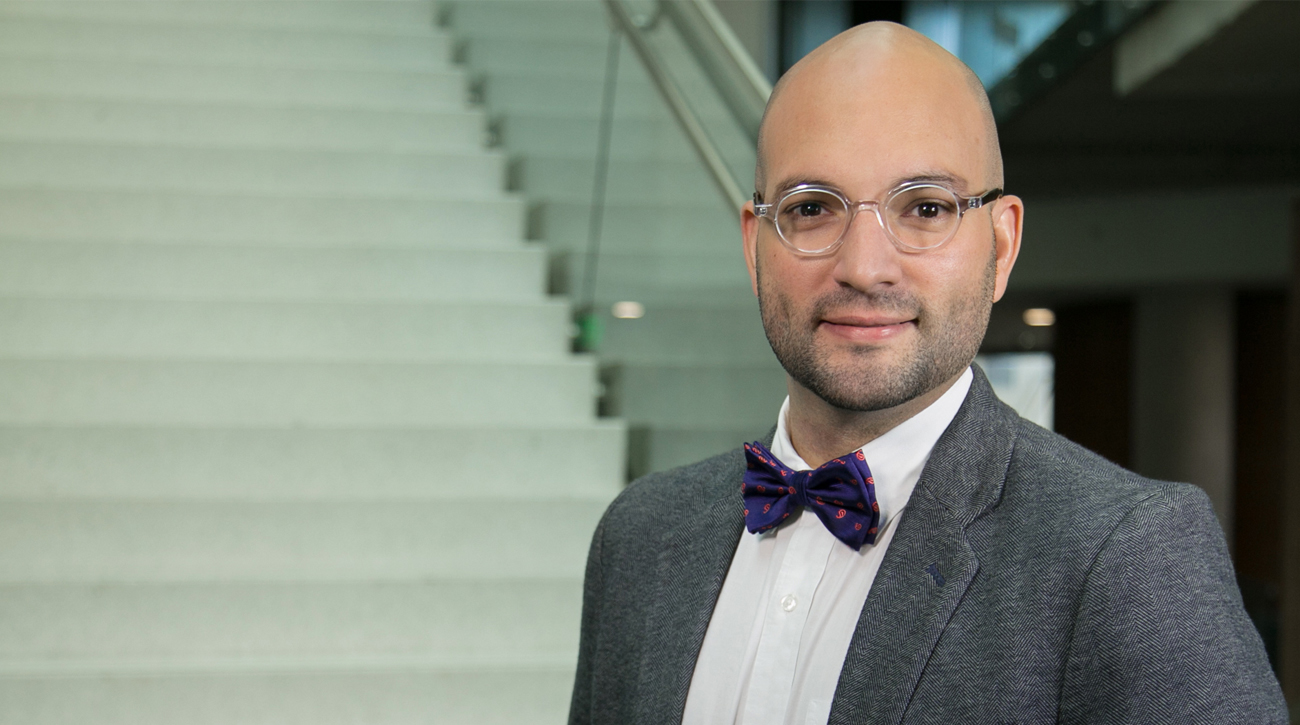Carlos Rodríguez-Díaz, an associate professor of prevention and community health at the George Washington University Milken Institute School of Public Health (Milken Institute SPH), researches what communities, workplaces and policies can do to promote health and ultimately reduce health inequities.
Rodríguez-Díaz focuses his research on HIV care and prevention, and sexual health promotion within LGBTQ populations. He has worked on projects to address stigma around HIV transmission and reduce sexual health disparities among LBGTQ individuals in Latino communities.
“Many health care programs were created around standards that do not address the specific needs of LGBTQ populations, such as the limited understanding about sexual diversity in the healthcare workforce,” Rodríguez-Díaz said.
Now, as part of the faculty at the Department of Prevention and Community Health, he plans to examine what public health interventions can help improve care for underserved populations, particularly LGBTQ groups and those disproportionally affected by the HIV.
“For example, I want to support transgender women in advocating for better health care services,” Rodríguez-Díaz said, “and enhance the ability for primary care providers to achieve the goal of culturally congruent transgender health care.”
Born and raised in Puerto Rico, Rodríguez-Díaz served as Associate Professor at the University of Puerto Rico Graduate School of Public Health prior to joining Milken Institute SPH in September. He plans to continue research on ways Puerto Rico can improve the resiliency of its health care systems after Hurricane Maria.
“I want to enhance our ability to be ready for the next natural disaster be it a category four hurricane or some other crisis,” Rodríguez-Díaz said.
In January 2018, Rodríguez-Díaz published an editorial in the American Journal of Public Health about the impact of Hurricane Maria on Puerto Rico. He also recently commented on how community pharmacies were challenged to adequately respond to patients’ needs after Hurricane Maria.
Rodríguez-Díaz is now examining the impact of Hurricane Maria on HIV care in Puerto Rico. By understanding how patients and health systems were resilient after Hurricane Maria, Rodríguez-Díaz hopes to suggest actions that can be taken before future natural disasters.
Rodríguez-Díaz said Milken Institute SPH’s position as the only public health school in the nation’s capital provides him a unique opportunity to make his research widely visible.
“One of the reasons I’m here is the ability to make our work visible in the epicenter of where decisions are made, not only for Puerto Rico, but for the entire U.S. and so many other places in the globe,” Rodríguez-Díaz said.


